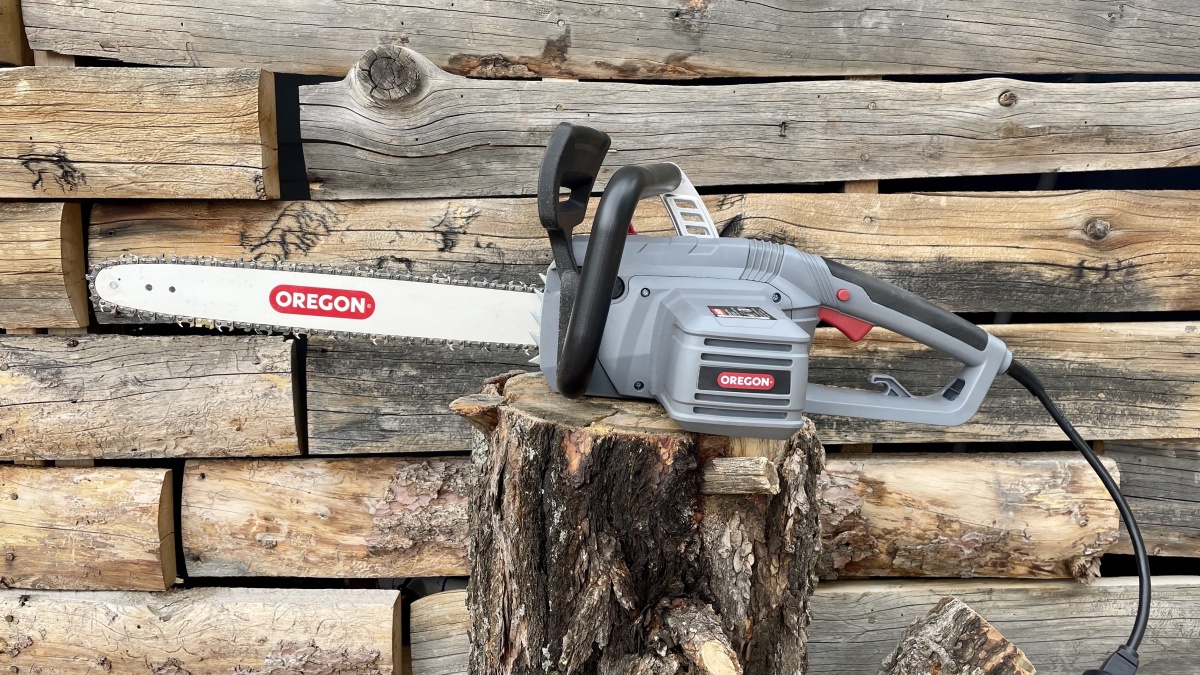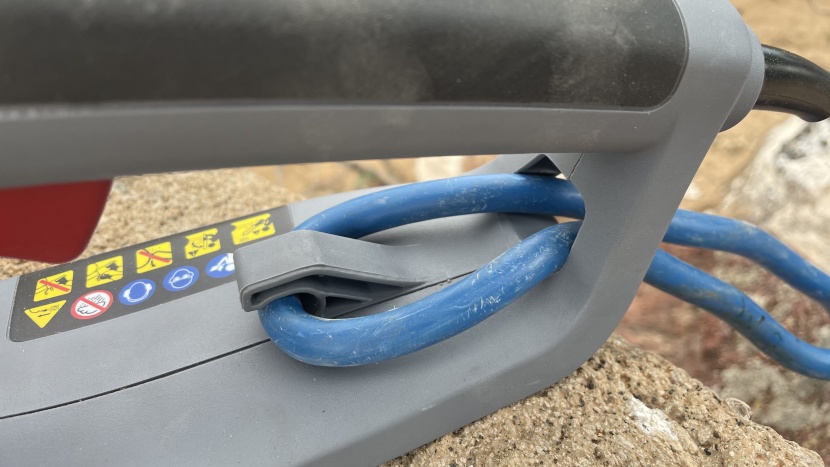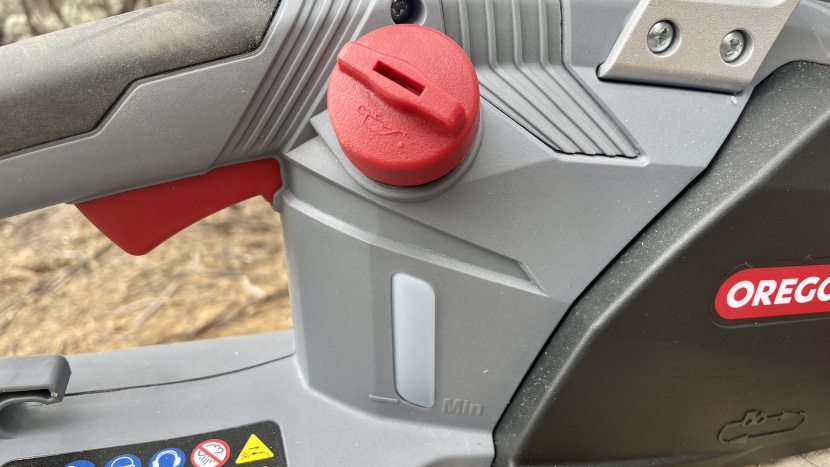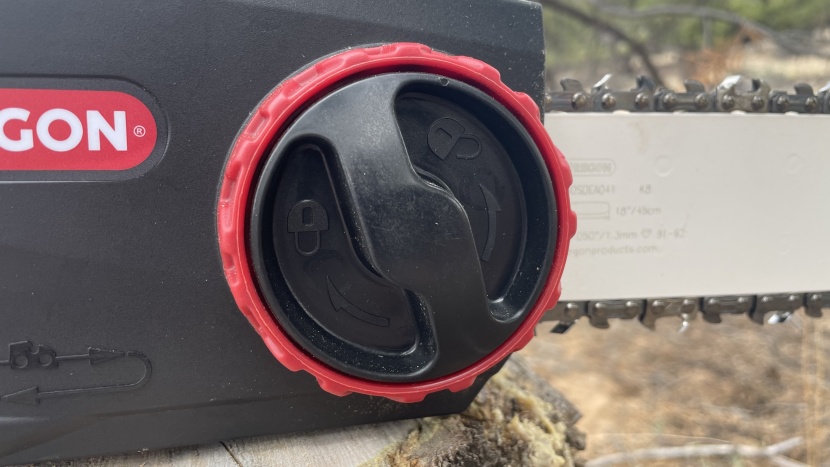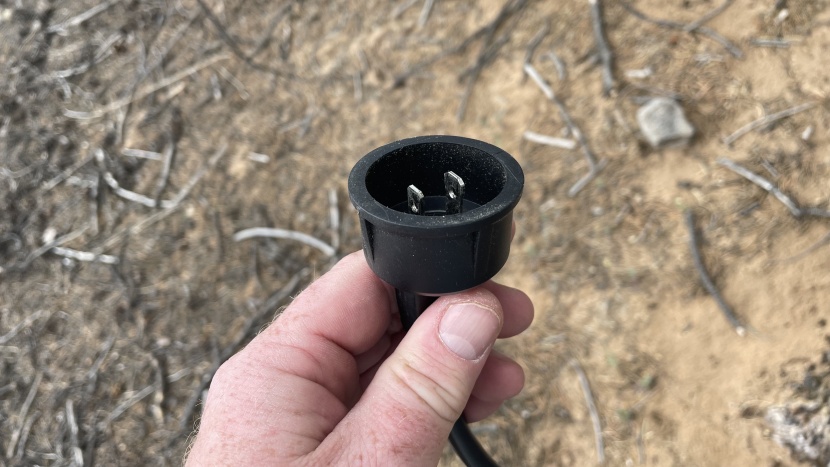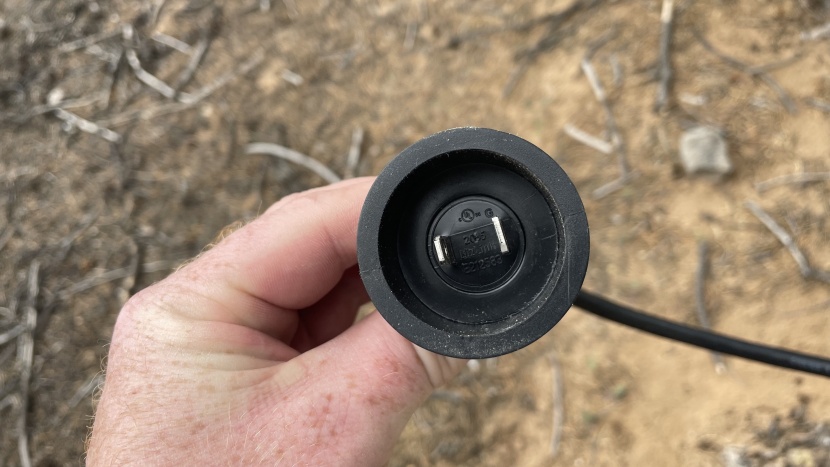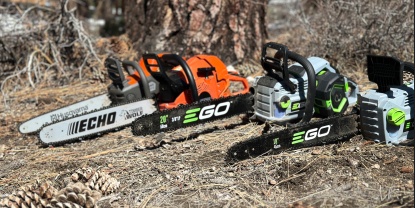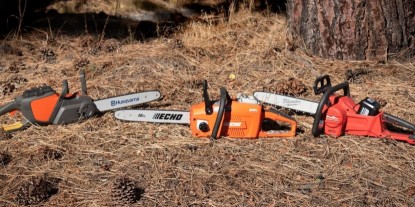
Our Verdict
Our Analysis and Test Results
In the world of chainsaws, Oregon has become world-renowned. Not only are their chains used by practically every manufacturer, but they also make top-tier saws. With their corded model, the CS1500, the designers have taken all of the best components of Oregon's gas-powered and battery-powered models and meshed them with an electric motor that plugs into the wall. Best of all, this model is highly affordable.
Saw Performance
To score this metric, we began by conducting wood-cutting time trials. We used the exact type and dimension of wood for each saw to give them a side-by-side analysis. We made five cuts per model and then calculated an average of the three fastest times. We also subjectively judged each model for overall feel and comfort while making cuts.
The Oregon CS1500 did reasonably well for this portion of our assessment. While it's not the fastest saw that we've seen, it's certainly nowhere near the slowest. With a 15-amp motor that plugs into an outlet, it's nearly as fast as the top-scoring battery-powered and corded-electric models, putting up an average measured cutting time of 7.8 seconds.
Our team found that the CS1500 handles well and has exceptional balance. When we used it to buck Pinyon Pine logs for firewood, it showed no signs of wanting to stop or stall mid-cut. The 18-inch bar is great for bigger rounds or for zipping branches off of a felled tree without having to bend over. We found two small flaws while assessing saw performance for this model — the motor housing is awkwardly wide, and the bar flexes if you don't keep it perfectly straight.
Ease of Use
The next chunk of our total score is dedicated to how easy each of these tools is to operate. We examined the throttle system and considered how long it takes to engage the chain once you're ready to make a cut. We disassembled and reassembled the bar and chain several times to gauge the difficulty of the process and examined the tensioning systems side-by-side with the other models. We considered how long it takes to refuel, charge, or in this case, connect the saw to a power source. We noted the location of the bar and chain oil compartment cap and whether or not the tank's oil levels are visible without removing the cap.
The CS1500 scored well for this portion of our analysis. The only reason why this model didn't score a point or two higher is that we have found that corded models are slightly more difficult to use than battery-powered or gas-powered models. When operating a corded electric chainsaw, you have to always be extra mindful while cutting because of the cord itself — especially in awkward positions. That said, the designers of the CS1500 thought to integrate a plastic hook into the underside of the saw's handle that ensures that you won't disconnect the saw at a critical moment.
Once the Oregon CS1500 is plugged in, it's exceptionally easy to operate. After disengaging the chain brake, the only thing you need to do to get the chain spinning is to push the thumb safety button and pull the trigger.
When it comes to maintenance and upkeep, this model is also very easy to operate. The oil cap is on the upper part of the saw body in a location that's easy to fill, with the saw sitting upright. We've found this location to be preferable to saws that require you to lay the tool on its side or certain models that need to be positioned in an awkward in-between angle in order to fill. The oil tank also has a semi-translucent plastic window that allows you to check the oil levels with the cap on so that you never run your chain dry as long as you're paying attention.
The bar and chain tensioning system on the CS1500 is tool-free and exceptionally easy to operate. The inner black knob loosens or tightens the clamp that holds the bar in place. The outer red wheel adjusts the tension of the chain when the black knob is loosened. This model also has an integrated chain sharpening stone that can be used by pushing a large button while the chain is spinning, but we did not find it to be particularly effective compared to a chain file.
Cut Capacity
For the next portion of our overall score, we examined the various power sources of each type of saw and judged their limitations or versatility. For battery versions, we ran each model at full throttle with no load, timed how long the batteries lasted, and then timed how long it took to charge. We ran a similar test for gas-powered saws. Again, we clamped the throttle wide open and timed how long they would run on a full gas tank. For the gas guzzlers, we timed how long it took to mix the 50:1 two-stroke fuel in a gas can and then how long it took to fill the tank. The only factors to consider with a corded electric model are how long it takes to plug in and how long a tank of oil will last.
After much consideration and discussion, our team decided that corded electric models should not score as high as cordless and gas models for this metric because of the limiting nature of the extension cord corded. Needing to be plugged into a power source heavily restricts the versatility of this type of saw, and, in many instances, they simply aren't an option for jobs that require a chainsaw. The distance that you can use your saw from your closest power source is limited by the length of the power cord that you own. You can't just use any old extension cord for saws such as the Oregon CS1500 either — they need to be large-gauge and heavy-duty. On top of that, the manufacturers recommend that you use an outlet with a ground force circuit interrupt, or GFCI, as an extra safety precaution.
While corded electric chainsaws like to tout that their saws have an unlimited runtime, the fact is that it is imperative that you periodically check the bar and chain oil. If you run a chainsaw without this critical lubricant, you are likely to severely damage or even destroy your tool. Corded electric models are also prone to overheating, so many have a mechanism that shuts the saw down before the motor is damaged. Unfortunately, the CS1500 does not have this feature.
Noise
We dedicated the remaining bit of the total score to the amount of noise each saw produces. To measure this, we used a sound pressure level meter at a distance of 48 inches, with the saw running at full speed. We also used our panel of judges to determine if any of the saws emitted an especially annoying or whiny pitch. Every chainsaw that we've ever tested is absurdly loud, and the CS1500 is no different. This model emits 86.6 decibels of sound and is definitely annoying to listen to.
Weight
One of our favorite elements of corded electric chainsaws is the lighter weight compared to most high-powered gas and battery models. With no fuel tank or brick-sized lithium-ion battery to muscle around, this type of saw is ideal for projects that require you to cut above waist height or in other awkward positions. Whether you're conducting a yearly tree pruning around the backyard or you finally decided to try your hand at chainsaw yard art bear sculptures, a lighter saw is ideal for many situations.
Should You Buy The Oregon CS1500?
If you are shopping on a budget and you don't mind being limited by the length of a power cord, the Oregon CS1500 is a great option. This model is the right saw for the DIYer that has occasional property projects that are close to the house and doesn't have a need to invest in an expensive gasoline or battery-powered chainsaw. We found this model to be particularly useful for dicing up truckloads of longer logs into firewood size pieces to be split.
What Other Chainsaw Should You Consider?
For those that are in the market for a top-tier corded model, the Makita UC4051A has even better cutting performance than the CS1500. If you like the idea of going electric but want to ditch the cord, the Husqvarna Power Axe 350i can't be beaten. If you are a die-hard two-stroker or you know you are going to be using your chainsaw where you are unable to recharge a battery, the Echo CS 590 is the top dog when it comes to consumer-level gas-powered models.
| Awards | Best Affordable Corded Chainsaw |
|---|---|
| Price | $115 List Check Price at Amazon |
Overall Score  |
|
| Star Rating | |
| Bottom Line | A highly affordable corded model that cuts well and is easy to use |
| Pros | Budget-friendly, decent cutting power, easy operation |
| Cons | Wide body, bar flexes, requires power cord |
| Rating Categories | Oregon CS1500 |
| Saw Performance (40%) | |
| Cut Capacity (25%) | |
| Weight/Cutting Small Limbs (20%) | |
| Ease of Use (10%) | |
| Noise (5%) | |
| Specifications | Oregon CS1500 |
| Bar Length | 18 inches |
| Measured Average Cutting Time | 7.8 seconds |
| 9 inch trees per minute | 6.2 |
| Measured Cutting Runtime | |
| Total 9 inch disks | |
| Measured Weight | 10 lbs, 10 oz |
| Measured Battery Weight | n/a |
| Measured Wind Up Time | .5 seconds |
| Recharge/Refuel Time | n/a |
| Motor Size | 15 Amp |
| Measured Decibel Reading at 48in | 86.6 dBa |
| Chain Replacement and Tensioning Type | Tool free |
| Metal Bucking Spikes | Yes |
| Power Source | Corded electric |


